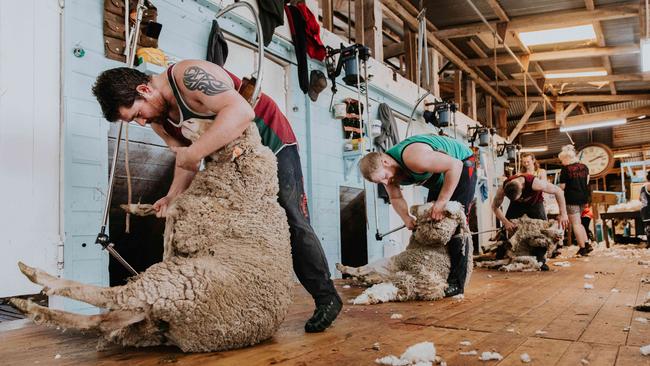Shearer shortage: Industry crumbles with dwindling numbers
Shearer numbers are dwindling throughout Australia amid Covid-19 complications. But the issues run deeper than the pandemic.

The shearing industry is in the midst of a nationwide historical shortage of workers, as the changing Covid-19 situation compounds the issue.
Covid-19 restrictions have shut international and state borders restricting seasonal employment, and wages are skyrocketing just to hold the few employees that are available. But many in the industry say Covid-19 has only compounded existing issues.
“It’s going from bad to worse at the moment,” secretary of the Shearing Contractors Association of Australia Jason Letchford said.
“There’s been a global shortage for the past 40 years which has been compacted by Covid,” Mr Letchford said.
“The issue is our available staff numbers are still declining but our sheep numbers are rebuilding now.”
Mr Letchford said with a shortage of supply, wages continue to creep upward to incentivise the dwindling workforce.
“I don’t think there is a shearer working in the country for less than 15 per cent above the award and that started in about October 2020,” he said.
“The pastoral award base rate is $3.31 per sheep, the 15 per cent increase came out at $3.82 but there’s plenty of operations out there at $4.25 and more in excess of that up to $5 and $6.”
Rob Crouch of A-team Shearing Contractors at Inverleigh has been contracting for 10 years.
In the midst of a worker shortage in November Mr Crouch raised his wages from $3.35 to $4 per sheep to incentivise his staff, having lost almost half his employees due to Covid-19 complications.
“In the first year of Covid we still had shearers from New Zealand and we were still just coming out of the drought we managed with that and thought that was the worst of it,” Mr Crouch said.
“This year, as soon as they closed state borders and brought in the doubled vaccinated regulations that really kicked us in the guts.”
Last year Mr Crouch employed around 50 shearers, this year he is operating with 25 to 30 shearers at most.
“Most shearing contractors want to downsize as well because of staffing issues, and I just don’t know who’s going to pick up the slack,” he said.
Bendigo-based shearing contractor Aaron Hope of Hopey’s Shearing said while Covid has presented its challenges, poor working conditions were turning his staff away.
“We’re short of shearers for sure but I don’t think it’s just Covid, I think the issues are a lot bigger than that,” Mr Hope said.
Mr Hope, who has been in the business for 18 years said poor work conditions like no toilets or running water and health and safety issues with improper equipment were a “major issue”.
“No one wants to go into the industry when it’s like that,” he said.
“Two years ago we had 18 to 20 shearers and we’ve cut that right back because our turnover was so massive. We’re working with eight or nine shearers at the moment.”




